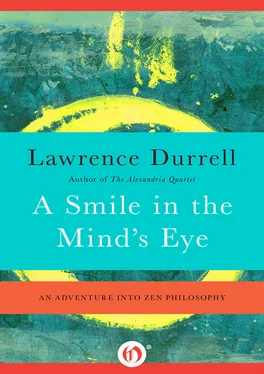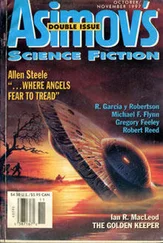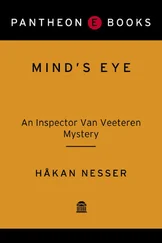Or as Ts’an is from Ch’en [two stars].
3rd Century Chinese
How odd that these apparently disparate incidents were all held together in my mind by a slender chain of echoes, a predisposition which stretched back to my twenty-third year in the remote (then) island of Corfu where I had taken up residence with the intention of trying my hand at being a poet — or at least a writer of some sort. It seemed clear now, as I thought back to that prehistoric time, that the main inhibition against giving Chang’s book a conventional review (what I had promised) was the echoes it had set off in my memory. I could not bring a coolly critical intelligence to bear on his text. This sense of indecision had been helped by the fact that I had also been trying to compile some sketchy autobiographical notes for an American friend who was anxious to trace what he called ‘the inner autobiography’ of my poetry. It dawned on me in answering his letters that the central preoccupation of the then unfledged young poet of Corfu has been always somehow linked with childhood dreams of Tibet which had at last concretized themselves about the Tao — the great poem of Lao Tsu. In the Black Book written around 1936, I find a Tibetan epigraph. The novel was published in 1938, the year before the war; already my poems were gathered into a bouquet to present to this amor fati from Lhasa, the tantric dakini who had guided and inspired me. It was a life sentence and it helped me to put a calm face upon the despair of the war years with their wanton murders of time and talent and truth. When the war came I had just turned twenty-seven. Among my papers, long after it had ended, I found a forgotten article I had contributed to the Aryan Path, called ‘Tao and Its Glozes’. The old Aryan Path, published from 51 Mahatma Gandhi Road, Bombay, was even then the most distinguished journal of the day devoted to theosophy, and my amateur article was published as a sort of little preface to the issue of December 1939, by which time my island life had ended and I was adrift in Athens waiting upon fate, waiting upon the Axis.
I reprint it here for old times’ sake, and also as evidence of my constant attachment to the principle of non-attachment as outlined in the poem! It was not a bad way to greet a world war. I note also the use of the adjective ‘heraldic’ for which I have often had to answer the critics. It means simply the ‘mandala’ of the poet or of the poem. It is the alchemical sigil or signature of the individual; what’s left with the ego extracted. It is the pure nonentity of the entity for which the poem stands like an ideogram! It sounds rather enigmatic put like that, though in fact it boils down simply to the crucial smile which I exchanged with Chang over the kitchen sink, and which needs no gloze. Language confronts this sort of reality with despair which rapidly turns to humour and, in the face of earnest or too earnest questioners, to slapstick. Another way of going about it would be to look up the Saxon word ‘ullage’ in the dictionary; the definition of it — ‘what a cask wants of being full’ — will exercise your reason to the snapping point — especially if your cask contains wine! It is another sort of koan — or can be used as one! The war was a time of hesitant stock-taking for all of us, and my little article with all its solemnity and youthful lack of experience — not to mention its inexactitudes — was a humble attempt to greet it with an act of affirmation. It may be a bit boring to read now, but for the young man in question it was a capital document.
TAO AND ITS GLOZES
(Lawrence Durrell in the following article suggests a method whereby the real Tao can be differentiated from that which is not the Tao. He rightly perceives that Tao is a philosophy, but also much more. Indeed it is ‘the uncreate unborn and eternal energy of nature, manifesting periodically. Nature as well as man when it reaches purity will reach rest, and then all become one with Tao, which is the source of all bliss and felicity. As in the Hindu and Buddhistic philosophies, such purity and bliss and immortality can only be reached through the exercise of virtue and perfect quietude of our worldly spirit; the human mind has to control and finally subdue and even crush the turbulent action of man’s physical nature; and the sooner he reaches the required degree of moral purification, the happier he will feel.’ — EDS)
It has become a commonplace in. literary criticism today to refer to the disparities which exist between certain portions of Lao Tsu’s Book of the Simple Way: to accept, with the limpid resignation of the scholar, the apparent confusions (the word is repeatedly used) of which the text seems so full. So far, it seems, no one has tried to disentangle the conflicting fibres of doctrine and statement. Indeed, the task is not one to attract the boldest of textual scholars, for properly speaking no text exists which would offer the reader any canon on which to build an analytical or critical scheme. Yet it seems to me that a method may be found — perhaps not stable or exhaustive enough to satisfy the pedant, but sufficiently exciting to interest the student of Tao — a method by which one may catch glimpses of the original work among the glozes and shifting emendations of later scribes. The clue lies embedded like a diamond in the body of the text itself; a clue sufficiently cardinal to allow one a firm working foundation.
Now Tao has been defined as a philosophy which remains always in sharp contradistinction to the Confucian (more generally the ‘Socratic’) dialect of the ethic; but it is more than that. (The word ‘Philosophy’ still carries with it the taint of method given it by the Greeks, from which it has been impossible to free it.) It is an attempt to localize an experience, which itself is too comprehensive to be included in the mere confines of language. Throughout the book one can feel the language probing, like a pair of giant callipers, attempting to circumscribe a realm, for the expression of which we have nothing between the madman’s idiom and the A minor Quartet. The searchlight of the ratiocinative principle is too weak to light up this territory: words themselves are used as a kind of sculpture, to symbolize what cannot be directly expressed: the heraldry of language is called into play to accentuate, to attest to, to pierce through the rind of the merely cognative impulse and delineate once and for all the mystery, the resting place of the Tao.
‘The true Tao is not the subject of discussion.’ In your opening statement you are faced with an attitude which, more exactly expressed as the text proceeds, ends in a complete and final denial of principle; a denial, in fact, of polarity, of schism. The affirmation here is that of a total personality, speaking from its totality. In the symbol of the Simple Way, expressed once and for all, you will find no trace of that abruption of the personality from its cosmos which has hallucinated European thought ever since pre-Socratic times. There is, to write nicely, no human entity; it is merged in the All. Here there is no trace of the rupture between the individual and his scenery. Fused, there remains only the gigantic landscape of the spirit, in which our Aryan problem (‘To be, or not to be’) is swallowed up, exhausted, sucked dry by the eternal factor — the Tao. The house admits its resident: the tenant is absorbed, like a piece of tissue, into the very walls of his spiritual house. The world of the definition is exploded. All this is so exhaustively written out in the book that it seems a little difficult at first to locate those areas in which the conflicting ideas enter. But with this profound clue (the denial, the absolution of principle) it would seem possible to retrace one’s steps; and against this rule, measure the various phases of the text.
Читать дальше











